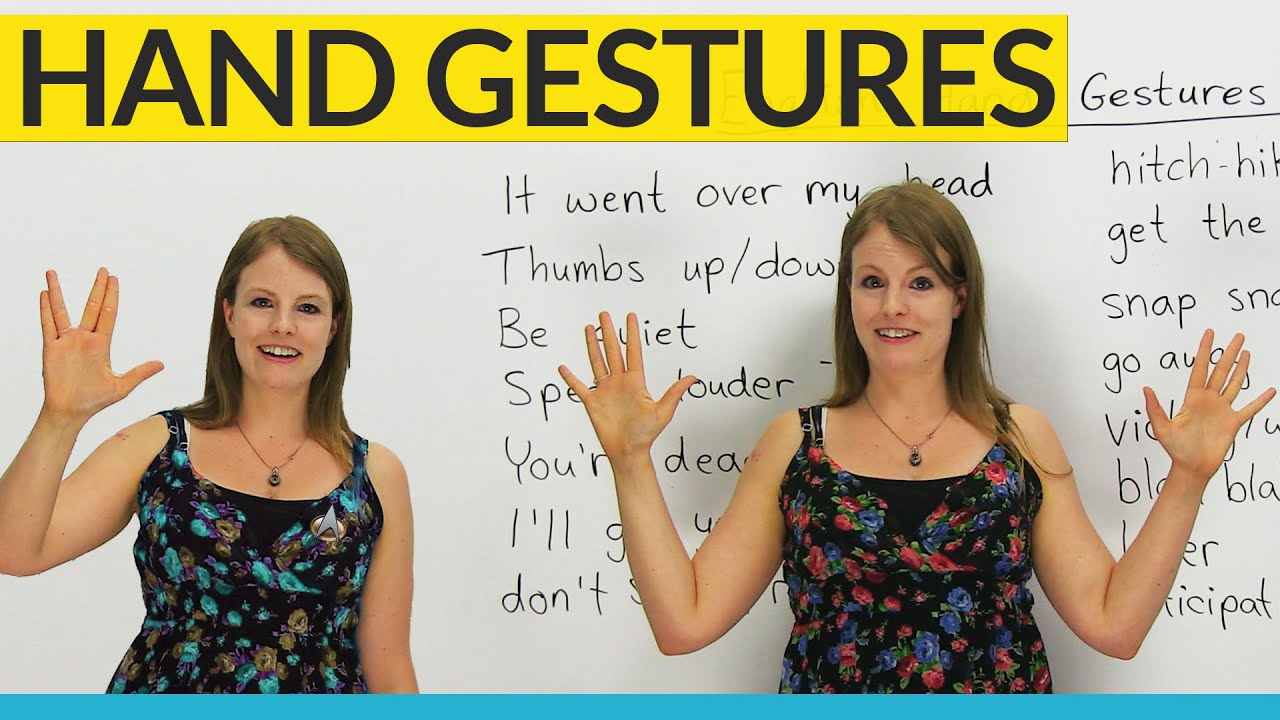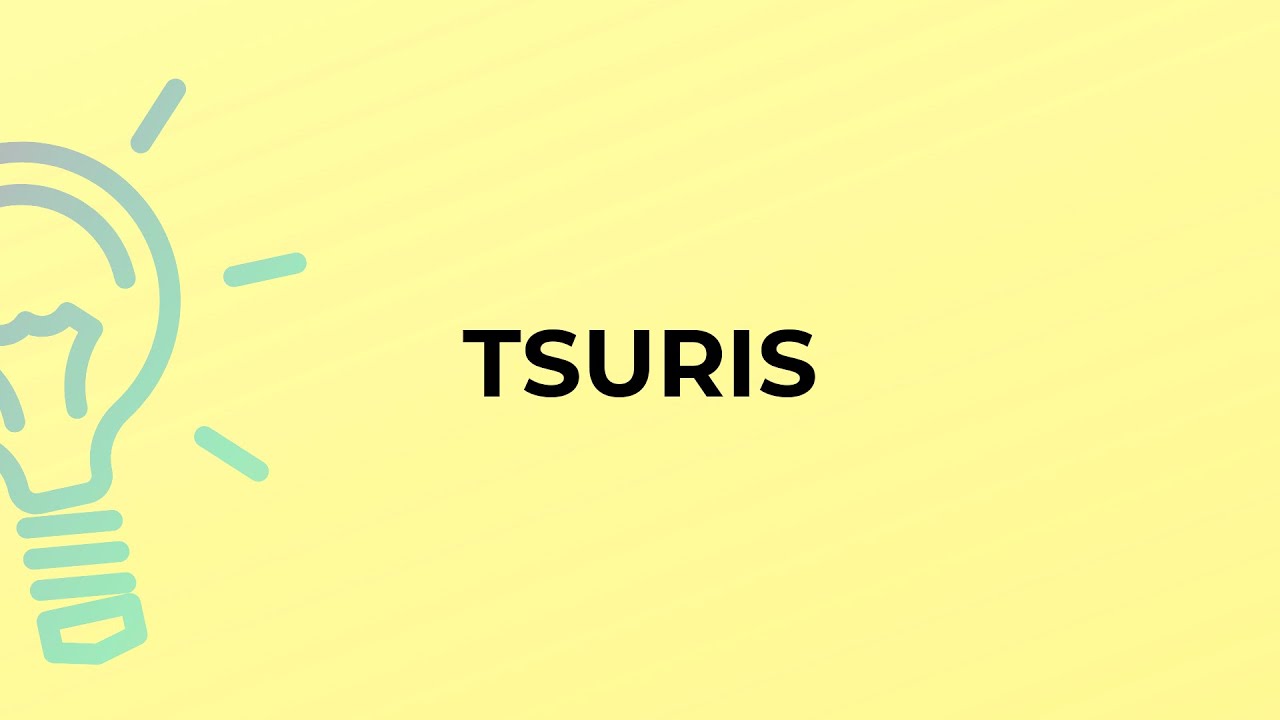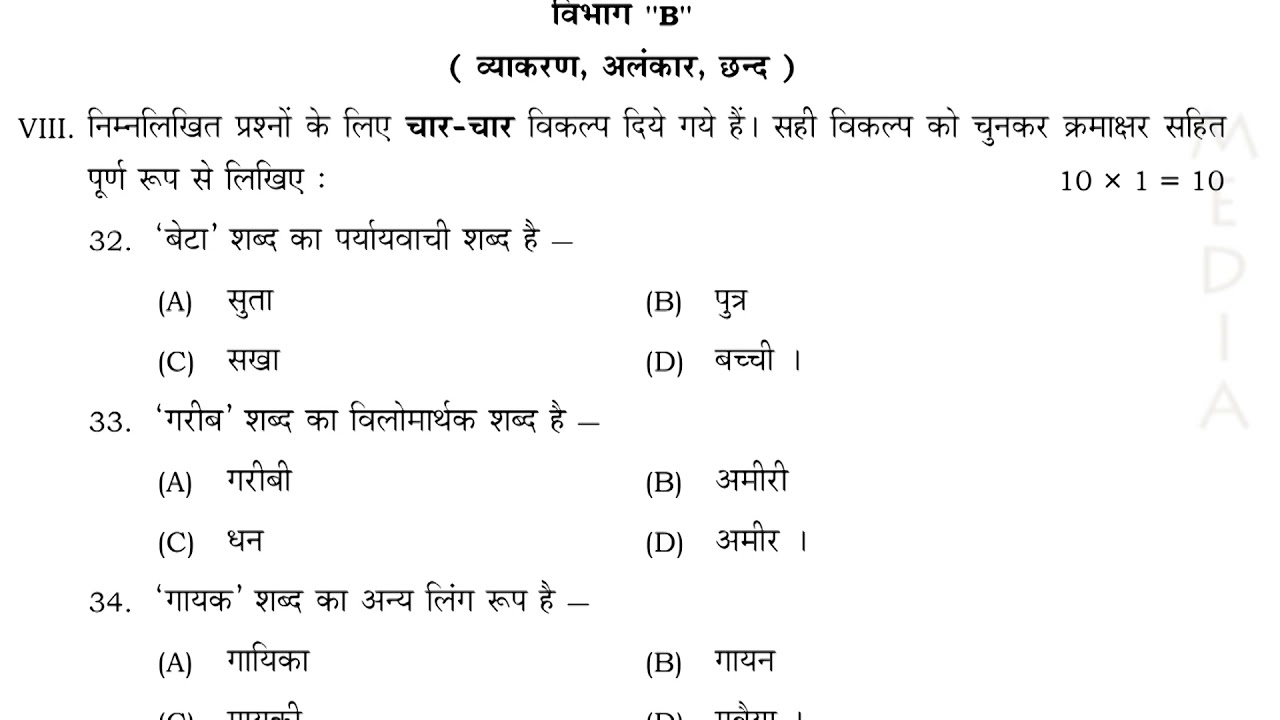Learn English with Emma [engVid]
Have you noticed that you make hand gestures while speaking your native language? Body movement during conversation can give off social clues that are particular to a certain culture. But when people learn a language, they often forget to learn the words and expressions that we make with our hands. You may find that a hand gesture in your culture has a different meaning in English-speaking countries. In this lesson, I will teach you common hand gestures used when speaking English.
Take the quiz to test your understanding: http://www.engvid.com/english-conversation-the-meaning-of-hand-gestures/
TRANSCRIPT
Hello. My name is Emma, and in today’s video, I am going to teach you all about how we use our hands in English. So there are many ways we use our hands in English. I’m going to teach you a lot of different ways we use them. A lot of students get very confused with this, because the way we use our hands varies from culture to culture, so what we do in Canada and England and the U.S. might be very different than with what you do in your country. Okay? So pay close attention to these differences.
So to start with, let’s look at: “knock on wood”. If you’re living in an English-speaking country, you may have noticed sometimes people have a wooden object or a desk, a table, something made of wood, and they knock on it. Okay? You might wonder: “What does this mean, knock on wood?” In English tradition, if you say something good, for example: “I did very, very well on my test. I killed my test. I did amazing on my test”, you might knock on wood to make sure that you don’t jinx it. Okay? I’ll give you another example. Imagine if I want to go on a picnic, and I’m a little afraid about rain, I might say: “Oh, you know, today’s supposed to be a very sunny day. Knock on wood.” I’m knocking on wood to prevent rain. Okay? So it’s a superstition we do in order to kind of protect ourselves from the opposite happening. Okay? One last example: -“How did your interview go? How did your job interview go?” -“Oh, it went well.” [Knocks] Okay, so that’s why we knock on wood, it’s a superstition.
All right, let’s look at some of these other ones. “Quotes”. A lot of students have asked me: “What does this mean?” Okay? So, for example, somebody might say: “Yeah, she’s beautiful.” Or: “He’s really smart.” This kind of has a sarcastic tone to it. It means somebody has said somebody is beautiful, but you don’t believe it. Or somebody has said somebody is smart, but you don’t believe it. So if you hear someone saying something, and you’re, you know, pretty much using their words but you don’t believe it, you can do quotes. Okay? Another example: “Yeah that movie was awesome.” Okay? So it means you don’t believe it. English is fun. Your teachers might tell you English is fun. When you’re talking to your friends, you might say: “English is fun”, if you don’t believe it.
All right, the next one: “crazy”. All right? In English, if we think someone is crazy, we go… Okay? So, for example: “That guy, he’s very…” [Clicks tongue] It means he’s very crazy. Okay?
“Fingers crossed”. A lot of the times in English, we take our fingers and we cross them, and we go like this. This means we’re hoping something happens. Okay? So, for example: I hope you like this video, fingers crossed. Or: I hope I did well on the test, fingers crossed. Okay? So this means you hope something is happening. Now, this is a little different from if you take your finger and you put it behind your back. If you take your finger… Your fingers crossed and you put it behind your back, it means you’re telling a lie. So, for example: “Oh, I loved the movie you made. The movie you made was incredible.” If my fingers are behind my back, it means I’m lying to you. “I never talk to that guy.” Okay? Fingers behind my back, it means I’m lying. Okay?
Now, this one you might know, I think it’s a very common one: “OK”. It can also mean: “nice work” or “A-OK”. So that means something has gone well.
We have this one which is a very rude one. This, which means… And sorry, I’m not doing this to you; I’m just teaching it. This means “up yours”, which pretty much in English means “fuck you”. Okay? So if you ever see somebody going like that, it’s not polite. It means up yours or fuck you.
Oh, we have one… Two more. “Peace sign”. Okay, when we’re talking about peace in English, we often go: “Peace.” So this is against war. In the 1960s, there were people called Hippies, they were always going: “Peace.” This is very different than the V sign, this. Peace is like this, the V sign is like this. The V sign is something that is almost the same as this. In England, in Australia, in New Zealand, if you do this to somebody, you’re pretty much telling them: “Fuck you.” Okay? So be careful. “Peace”, versus “Fuck you.”




Ha ha ha ha very useful .
Long live and prosperity! (i can do ithe hand gesture).
Thank you very much
I think ,For quotes its not just for something we dont believe…quotes also for relative concepts or things that need discussion and people dont agree about them……
????
you are wonderful in explaining English and its cultural aspects. Thank you for making these videos and making them available to public.
Touch wood we say here in India for knock on wood
Native speaker here. I’m watching this because I don’t use hand gestures much at all and I feel they’re good in conversation. I wanna learn some
Youuuu areeee wowwwwww! ???
Excellent episode, amazingly informative mate!?
awesome, really helpful.
The whole clip is great, but I don't agree with the statement that 80% of communication is the body language. Come on! It's just a myth that is passed on. How can you communicate everything you want on the phone? How can you communicate that you need mint tea with gestures? How can yoy communicate: "Tomorrow at 5 pm I'm going to the cinema with my sister."? Etc. Nonetheless, I will recommend the clip?
almost 90% of them we use it in somalia
She is definitely not what rude vulgar scoundrels call a "chinky". So what could have happened to her eyes? Did she have a very serious accident and her eyelids got stitched or something? She is undoubtedly an excellent teacher of English grammar. BY THE WAY, I NEVER LIE – unlike everybody in this bad sordid world. Incidentally, I have recently graduated from My insincere habit of using "sweet and s." for all gals to (insincere?) "darling" for all s. gals including this sweet and s. darling. Robot? – G
Hi from Thailand. This is the best clip that I've ever seen in English teaching media. It answers many questions that I wondered for a long time. In addition, your explanations are very easy to understand for forienge students. Thank you very much for making this exellent clip.
4:36 I love you teacher.
Ma'am your all lectures are very useful.
I always enjoy your videos and this one was one of the greatest. Thank you ??
This is à fascinating vidéo
Thanx
. mb
it is the same in my country
ksa
not all but some of them
however thank you.
Thanks a lot , after a long time find a great and really a
nice teacher again.
So what does it mean when someone types “goodnight ?”? I’m confused
What does Fingers pinched together gesture means
great video mam
Thank you so much for this lesson I love you so much
? really enjoyed
I understand very well,thanks.
Oh Emma you have a wonderful way to describe.
Does anyone here know the meaning of the gesture that was in the hunger games movie?